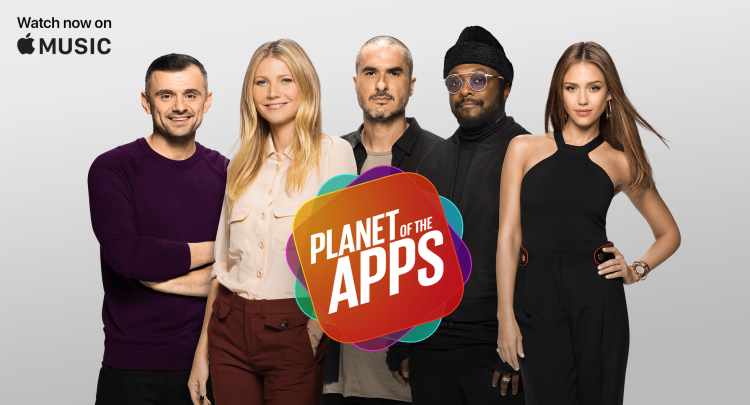Given Apple’s original content track record thus far, the company might do just as well burning a pile of a billion $1 bills as it would buying original programming.
The odious Planet of the Apps has proved to be every bit the cringeworthy crapfest its very name suggested the moment it was announced. The recently debuted Carpool Karaoke (based on James Corden’s segment of the same name) takes an occasionally amusing concept and stretches it into an unwatchable format four times as long.
Naturally, Apple’s response is to spend more money on original content, $1 billion according to the Wall Street Journal.
There’s a fair bit of musing today about what that programming might look like and how that amount stacks up against the dollars being spent by incumbents like Netflix, Amazon, or HBO.
June 5th: The AI Audit in NYC
Join us next week in NYC to engage with top executive leaders, delving into strategies for auditing AI models to ensure fairness, optimal performance, and ethical compliance across diverse organizations. Secure your attendance for this exclusive invite-only event.
But much of the chatter seems to gloss over the real question: Why bother?
Even if Apple could miraculously produce a show better than, let’s say, Game of Thrones, how would that actually benefit the company?
Presumably, Apple would be writing these checks in advance of launching a subscription streaming service. That would put it in direct competition with the aforementioned streaming giants. But while each of those companies has a rationale for being in the streaming business, it’s hard to see why it is remotely worth the trouble for a company like Apple.
For Amazon, streaming is a gift to users of its Prime service, which likely drives loyalty and greater purchasing. For HBO, well, original content’s been its business for decades, to augment theatrically released programming, and now to drive subscribers as cable companies lose traction with younger viewers. For Netflix, it’s a way to differentiate itself and control its destiny as buying others’ content gets more expensive.
So what’s in it for Apple? Certainly, Services has been the company’s fastest-growing business over the past year. But that is mostly driven by growth in the App Store. Two years ago, with digital music downloads fading, the company launched its subscription streaming Apple Music, a move that I feel now and felt even then was rather futile.
The company has an impressive-sounding 27 million paid subscribers on Apple Music, which has probably more than offset the collapse of the company’s digital download business. At $6 per month, those subscribers mean the streaming service could be generating at least about $2 billion annually, more depending on how many users are on the $9 family plan and on how Apple counts those users.
Yes, $2 billion is nothing to sneeze at, though it’s not clear what the margins are on that business. Are they driving gadget sales? Over the past two years, iPhone sales have been relatively flat. And let’s not forget that to launch this business, Apple bought Beats Music for $3 billion.
Meanwhile, the winner here seems to be streaming leader Spotify, which recently said it has 60 million paying subscribers and which has been widening its lead over Apple Music this year.
This brings me back to video streaming. Netflix recently announced it has 104 million subscribers. Now, I would imagine that Apple is likely experiencing a decline in video iTunes purchases and rentals, though the company has not said that publicly. Presumably, a video streaming service could offset those declines.
But let’s say that in a best-case scenario Apple could get 100 million subscribers and charge them $10 per month. That would be $1 billion in revenue right there — though it’s unlikely Apple can charge that much or that the 10 shows it wants to buy would attract that number of subscribers.
But even if could, then what? Is that going to help the company sell more units of its disappointing Apple TV device? Will it goose iPhone or iPad sales? Hard to imagine.
Maybe this move is designed to put pressure on recalcitrant studios and broadcasters who have balked at signing up for Apple’s proposed streaming service. But it’s doubtful Apple has the leverage it did almost 15 years ago when music labels were facing the threat of piracy. And Apple never did exert the same influence in the realm of video. It’s likely broadcasters are far more nervous about Netflix than Apple.
About the only scenario I could imagine making sense is if Apple decides to make the shows free for iOS users — a gift, like Amazon’s Prime, to reward loyalty. Apple did something like that a few years ago when it made many of its apps free. Even so, this would seem to only help at the margins — something hardly worth the effort (and distractions) that will come with overseeing the production of original content.
Still, somehow someone has convinced Apple CEO Tim Cook of the wisdom of this idea. So there appears to be no turning back.
Of course, even at the very worst, this won’t sink the company. As its pursuit of original content makes clearer than ever, Apple has plenty of money to burn.

